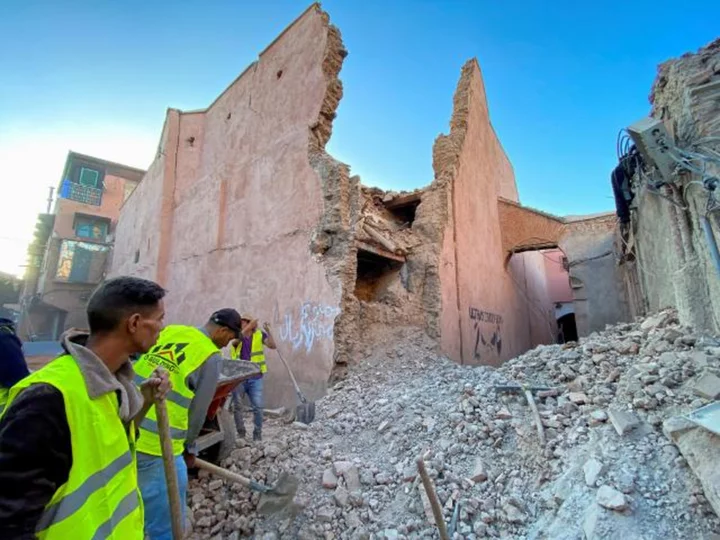As the dust began to settle, panic set in.
Screams echoed through the narrow streets of Marrakech's old city as the extent of injuries and damage became apparent.
Just seconds before the magnitude 6.8 earthquake shook the Moroccan city, scores of people had been enjoying their Friday evening in the crowded alleys and on the city's bustling Jemaa el-Fnaa square.
Others had been asleep when the ground began to violently shake just after 11 p.m. local time (6 p.m. ET).
As the earthquake caused buildings to collapse, killing at more than 1,000 across Morocco, those who could crowded the streets. While some had told CNN that they hadn't initially realized what was happening, the fear of aftershocks and further buildings collapsing soon saw a sense of reality kick in.
When the magnitude of this natural disaster slowly began to show, many made their way for wide, open spaces, as far away as possible from tall buildings, lampposts and electricity cables.
Severely injured people were carried out of destroyed homes on stretchers, or even wrapped in carpet, and the cries for help grew louder and louder. In some cases, they fell on deaf ears an ambulance crew turned away an elderly woman. With the vehicle full of injured people, the crew -- visibly shaken by the scenes -- explained that they simply did not have enough space to take her to hospital.
Many of those who were lucky enough to escape the earthquake unharmed stayed in the street until the early hours of the morning. With homes destroyed and rumors of an even stronger aftershock circling, makeshift beds were erected as people decided to camp out on the streets. The morning after, some of them were still there, many of the city's parks, plazas and parking lots transformed into tragic impromptu campsites.
Others decided to leave. Families, including pets, packed into small overcrowded cars, climbed aboard motorbikes, or -- in some cases -- even opted for horse-drawn carriages. Those who could, CNN was told, opted to leave for Morocco's coastal cities of Rabat or Casablanca. For others, leaving the city behind them and finding refuge somewhere, anywhere outside the city, was enough.
They left behind them a historic city badly damaged. Marrakech's Medina and city walls, adored by tourists, were hit particularly heavily, their century-old structures unable to withstand the violent shake.
While Marrakech suffered, the epicenter of the earthquake was around 50km away, in the rural, mountainous Al Haouz region.
It was from these rural areas dozens if not hundreds of injured were brought to the city's CHU Mohammed VI hospital's emergency department.
There were scenes of desperation in the hospital courtyard.
With the hospital at full capacity, medics performed open-air triage with many patients, including some appearing to be severely injured, being treated outside the hospital in a row of hospital beds.
While most patients from Marrakech had been seen to by the morning, those from rural areas continued their painful wait.
In many cases, those waiting for treatment had lost loved ones in the earthquake. One woman from the small town of Chichaoua who CNN spoke to outside the hospital had said that her husband and daughter remained under the rubble. She said that she had no hope for her family members.

